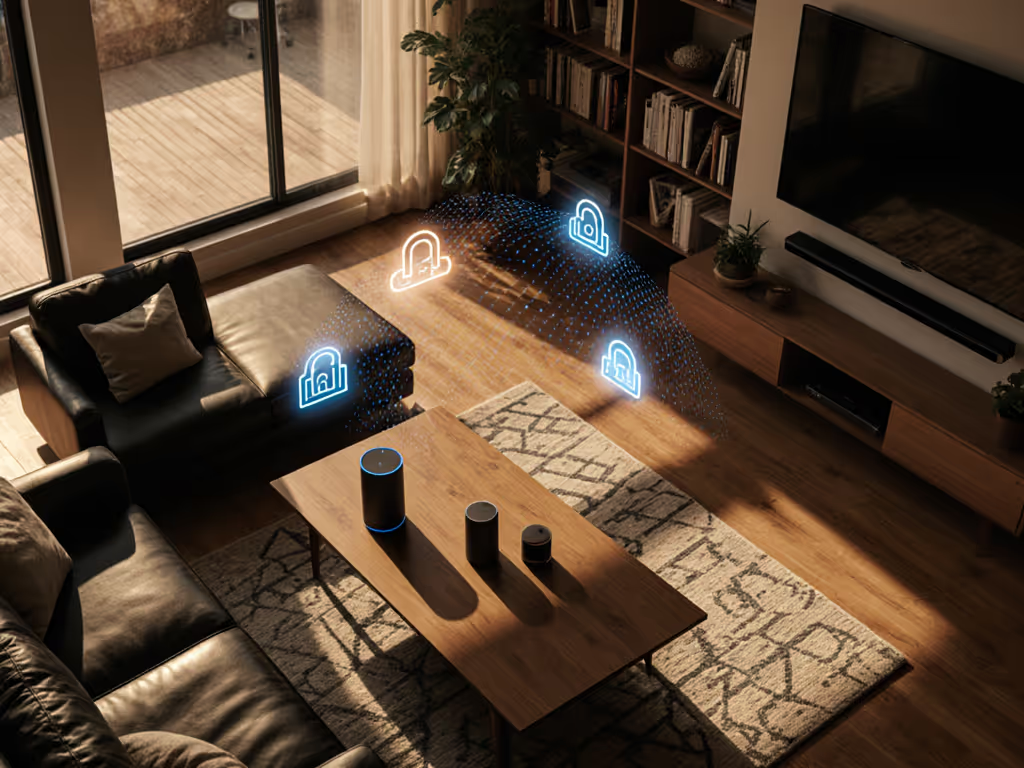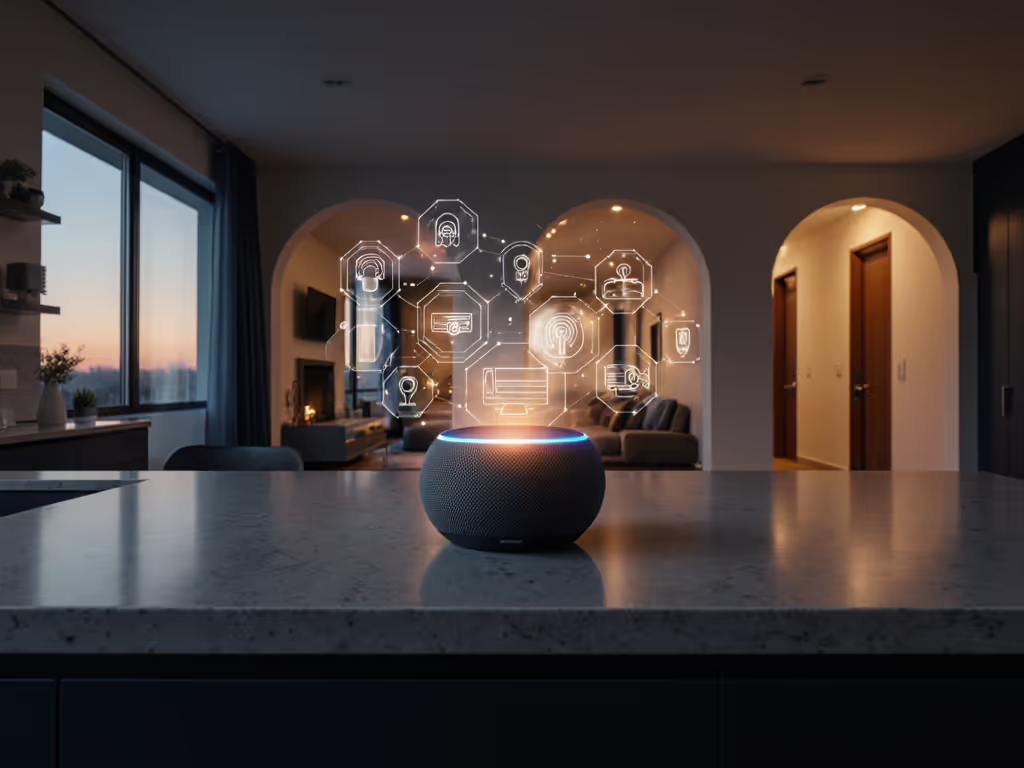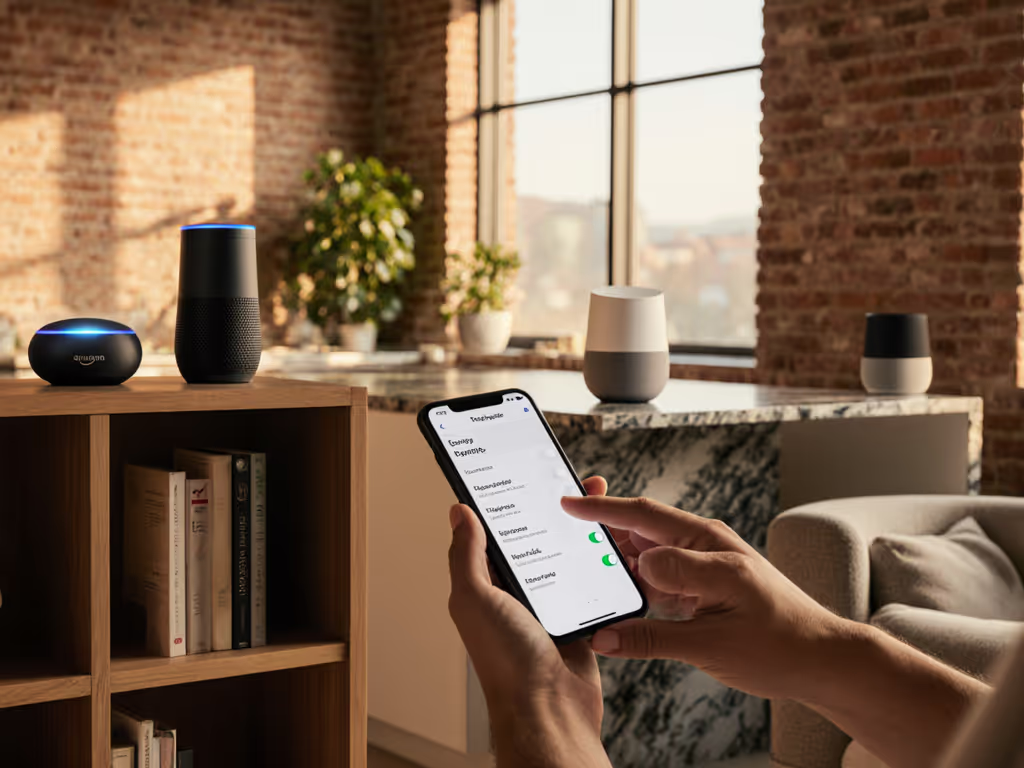
Smart Speaker Privacy: Control Your Voice Data Now

When a child asked why the kitchen speaker knew her nickname, we discovered no one remembered granting that permission. That moment crystallized everything: smart speaker privacy and voice assistant security aren't just technical checkboxes, they are daily household realities. Recent studies confirm our suspicions: Amazon processes voice interactions to infer interests like 'beauty' or 'religious beliefs,' then uses them for ad targeting (without clear disclosure). As many as 41 advertisers sync cookies with Amazon, amplifying tracking 247-fold. If your family can't understand your privacy settings, they're not protective. They're broken. Let's fix that.
Data you never collect can't leak.
Why Your Smart Speaker Knows Too Much (And How to Stop It)
How Are Voice Assistants Really Using My Data?
Research from UC Davis and Washington University peeled back the curtain. Teams built personas ('Fashion & Style', 'Health & Fitness') to test Alexa. Results? Amazon inferred browsing habits from voice commands (e.g., 'read Bible verses' revealing religious affiliation) and auctioned interest profiles to advertisers. The Health persona drew 30x higher ad bids than neutral profiles. Worse: Amazon's privacy policy never mentioned this use case until after researchers exposed it. Similarly, Google links all voice data to your account, enabling profiling across Search, Gmail, and YouTube.

This isn't accidental, it is baked into the business model. But you can disrupt it with three non-negotiables:
- Demand local-first defaults: Process commands on-device, not in the cloud.
- Require explicit consent prompts: No silent data harvesting.
- Audit retention policies: Know exactly how long recordings are stored.
How Do I Lock Down My Alexa Privacy Settings?
Amazon's settings bury critical controls. Start here:
- Disable personalized ads: Go to Alexa Privacy > Manage Your Advertising Preferences > Opt out of interest-based ads. This severs the ad-targeting pipeline.
- Shorten voice data retention: Alexa Privacy > Manage Your Data > Set retention to "3 months" (defaults to indefinite).
- Nuke historical recordings: Delete by voice or timeframe - don't trust 'auto-delete' promises.
- Disable skills data sharing: Manage Skills > [Skill] > Settings > Turn off "Data Sharing". Most third-party skills hoard data.
Critical move: Disable microphone physically when not in use. LED indicators (like Echo's red ring) beat software toggles (no cloud dependency, no accidental streams). Remember: Consent isn't a buried settings toggle. It is a hardware switch you see.
What About Google Home Data Collection?
Google's 'anonymized' claims crumble under scrutiny. Since voice data ties to your Google Account, everything (sleep schedules from 'goodnight' routines, relationship status from wedding registries) feeds profiling. To limit exposure:
- Turn off Web & App Activity: Google Account > Data & Privacy > Turn off "Web & App Activity". This stops cross-service tracking.
- Auto-delete voice recordings: Google Dashboard > Voice & Audio > Auto-delete after 3 months. Verify it's active monthly.
- Disable Assistant recordings: Google Home app > Assistant Settings > Voice Match > Turn off recording. Sacrifices some features for control.
Unlike Amazon, Google claims it won't share data with advertisers, but it monetizes your profile itself via Search/YouTube ads. The fix? Local processing. Devices like HomePod (using on-device Siri) minimize cloud dependence. Where possible, choose speakers that process commands locally. For a side-by-side look at how Amazon, Google, and Apple handle voice data, see our privacy settings comparison.
Guest-Proofing Your Voice Assistant
How Do I Create Safe Guest Modes?
Houseguests shouldn't trigger shopping orders or access calendars. Real guest safety requires:
- Physical mute buttons: Non-negotiable for bedrooms/guest rooms.
- Voice confirmation for purchases: Alexa Settings > Voice Purchasing > Require voice PIN. Same for Google: Assistant Settings > Voice Match > Require PIN for purchases.
- Separate user profiles: Train each family member's voice individually. Alexa's profile setup takes <60 seconds (do it during dinner).
One family I worked with reset all devices after a child bought dolls via voice command. Relief flooded the room when they switched to explicit consent prompts for every action. Privacy isn't about suspicion, it's about peace of mind when kids or guests are around.
Why 'Disable Microphone' Isn't Enough
Software mute buttons (like Alexa's app toggle) can fail silently. Always pair them with hardware indicators:
- Echo devices: Solid red light = truly off.
- Nest Audio: Orange bar = mic disabled.
- HomePod: Physical mute switch + LED confirmation.
Without visible feedback, how can guests trust you? Privacy fails when it's invisible. Test yours monthly: Say 'Hey Google, mute', then watch for the visual cue. If it's absent, reset the device.
Taking Back Control: A 5-Minute Audit
Do this now to slash your exposure:
- Delete old recordings: 80% of users never clear voice history. Do it.
- Shorten retention: Cap at 3 months (not Amazon's indefinite default).
- Audit skill permissions: Revoke data access for unused skills.
- Enable local processing: Prioritize devices that support on-device commands (e.g., HomePod's Siri).
- Test mute indicators: Verify red lights/orange bars work post-mute.
This isn't paranoia, it's prevention. When voice data storage gets weaponized for ads, your household's calm becomes the casualty. But with guest mode clarity and retention periods spelled out, you rebuild trust room by room.
Your Next Step
Privacy isn't a one-time fix. It's daily hygiene. Bookmark your device's privacy hub (not the main settings menu). Review it quarterly. Ask: 'Could my child explain this setting?' If not, reset and rebuild.
Demand local-processing emphasis from every brand. Your voice data is yours, not a free ad-targeting tool. When you make privacy a visible feature, not a buried toggle, everyone in your home breathes easier. After all, the best privacy policy is one you feel in your bones.
Related Articles


Voice Commerce Security: Built-In Purchase Protection

